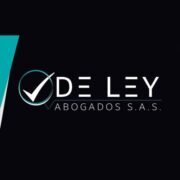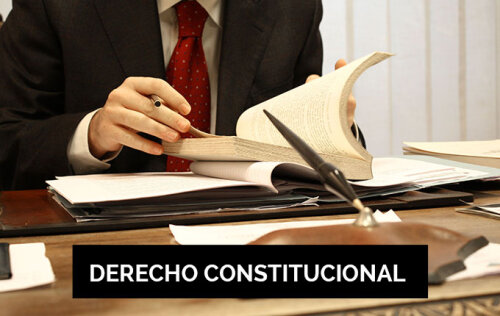Best Tax Lawyers in Colombia
Share your needs with us, get contacted by law firms.
Free. Takes 2 min.
Or refine your search by selecting a city:
List of the best lawyers in Colombia
About Tax Law in Colombia
Tax law in Colombia is governed by a complex set of rules and regulations overseen by the Directorate of National Taxes and Customs (DIAN). These laws cover a wide range of tax obligations, including income tax, value-added tax (VAT), property tax, and various other levies. Colombia's tax system is designed to ensure the adequate collection of revenues needed to support governmental functions. Additionally, Colombia has entered numerous agreements with other countries to avoid double taxation, encouraging foreign investment while maintaining fair taxation practices for both residents and non-residents.
Why You May Need a Lawyer
Seeking legal assistance in tax matters in Colombia can be essential in various scenarios, such as:
- Navigating complex tax regulations when starting a business or expanding operations.
- Handling audits or investigations conducted by DIAN.
- Dealing with discrepancies in tax returns or filing issues.
- Understanding obligations under international tax treaties.
- Structuring financial transactions to ensure compliance with tax laws.
- Resolving disputes and negotiating tax settlements.
- Seeking guidance on tax implications of personal or corporate financial decisions.
Local Laws Overview
Tax laws in Colombia can be generally categorized under the following key areas:
- Income Tax: Imposed on both residents and non-residents. Residents are taxed on their worldwide income, while non-residents pay taxes only on Colombian-sourced income.
- Value-Added Tax (VAT): Applied to the sale of goods and services. The general VAT rate is 19%, although certain goods and services might be exempt or subject to reduced rates.
- Corporate Tax: Colombian companies pay a rate of approximately 33%; however, this can vary based on industry incentives and deductions.
- Double Taxation Treaties: Colombia has numerous treaties to prevent double taxation, affecting tax liabilities for international business operations.
- Customs Duty: Apply to goods imported into the country, with rates varying based on the product classification and trade agreements.
Frequently Asked Questions
What are the primary taxes that individuals need to pay in Colombia?
Individuals generally need to pay income tax, VAT for goods and services they consume, and property tax if they own real estate.
Who is considered a tax resident in Colombia?
Individuals who spend over 183 days in Colombia within a 365-day period are considered tax residents and are subject to taxes on their worldwide income.
What is the filing deadline for income tax returns in Colombia?
The filing deadline varies depending on the last digits of the taxpayer's Tax Identification Number (NIT), typically occurring between August and October each year.
Are there any tax incentives available for businesses in Colombia?
Yes, Colombia offers various tax incentives for sectors like renewable energy, tourism, and technology to encourage investment and growth.
What penalties apply for late tax filings or payments?
Late tax filings or payments can attract significant fines, interests, and potential legal action from DIAN.
How does VAT work in Colombia?
VAT is charged on the sale of goods and services at a standard rate of 19%. Certain products, like basic groceries and public education services, might be exempt or taxed at lower rates.
Can I appeal against DIAN assessments?
Yes, taxpayers have the right to challenge DIAN assessments through administrative objections and, if necessary, legal proceedings in tax courts.
How does Colombia address tax evasion?
Colombia has stringent measures against tax evasion, employing both administrative practices and legal actions to ensure compliance.
What is an electronic invoicing requirement in Colombia?
Electronic invoicing is mandatory for most businesses, ensuring transparency and accurate record-keeping in tax transactions with DIAN.
How does Colombia handle international taxation?
Colombia addresses international tax issues through transfer pricing regulations and treaties to prevent double taxation and tax evasion.
Additional Resources
Here are some resources that can be useful for understanding tax obligations in Colombia:
- The Directorate of National Taxes and Customs (DIAN): The primary government body for tax-related matters in Colombia.
- Chambers of Commerce: They often provide guidance on business-related tax obligations.
- Local law firms specializing in tax law: These can provide personalized advice and representation.
- Colombian Taxation Books and Guides: These resources offer in-depth insights into local tax laws and amendments.
Next Steps
If you need legal assistance in the field of tax in Colombia, consider the following steps:
- Identify your specific tax issue to determine the type of legal expertise required.
- Research and contact qualified tax lawyers or firms with experience in Colombian tax law.
- Prepare all relevant documents and financial records before consultations to provide comprehensive information to your lawyer.
- Understand the fees and retainer agreements for legal services beforehand.
- Follow your lawyer's advice and leverage their expertise to navigate the tax landscape effectively.
Lawzana helps you find the best lawyers and law firms in Colombia through a curated and pre-screened list of qualified legal professionals. Our platform offers rankings and detailed profiles of attorneys and law firms, allowing you to compare based on practice areas, including Tax, experience, and client feedback.
Each profile includes a description of the firm's areas of practice, client reviews, team members and partners, year of establishment, spoken languages, office locations, contact information, social media presence, and any published articles or resources. Most firms on our platform speak English and are experienced in both local and international legal matters.
Get a quote from top-rated law firms in Colombia — quickly, securely, and without unnecessary hassle.
Disclaimer:
The information provided on this page is for general informational purposes only and does not constitute legal advice. While we strive to ensure the accuracy and relevance of the content, legal information may change over time, and interpretations of the law can vary. You should always consult with a qualified legal professional for advice specific to your situation.
We disclaim all liability for actions taken or not taken based on the content of this page. If you believe any information is incorrect or outdated, please contact us, and we will review and update it where appropriate.
Browse tax law firms by city in Colombia
Refine your search by selecting a city.















